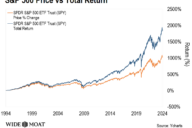Catch up on the weekend’s top five stories with this list compiled by The Fly:
1. Fresenius (FSNUY) decided to terminate the company’s merger agreement with Akorn (AKRX), citing Akorn’s “failure to fulfill several closing conditions.” The company said in a statement, “Fresenius’ decision is based on, among other factors, material breaches of FDA data integrity requirements relating to Akorn’s operations found during Fresenius’ independent investigation. Fresenius offered to delay its decision in order to allow Akorn additional opportunity to complete its own investigation and present any information it wished Fresenius to consider, but Akorn has declined that offer.”
Responding to Fresenius’ announcement, Akorn said in a statement that “We categorically disagree with Fresenius’ accusations. The previously disclosed ongoing investigation, which is not a condition to closing, has not found any facts that would result in a material adverse effect on Akorn’s business and therefore there is no basis to terminate the transaction. We intend to vigorously enforce our rights, and Fresenius’ obligations, under our binding merger agreement.”
2. Tencent Music Entertainment Group is preparing what would be one of the biggest technology IPOs ever, according to The Wall Street Journal. The digital-music business of Tencent (TCEHY) plans to interview potential underwriting banks over the next month, sources told the publication.
3. There has been a tension between the world’s largest tech companies – Alphabet (GOOG; GOOGL), Amazon (AMZN), Facebook (FB), Apple (AAPL), Microsoft (MSFT), Baidu (BIDU), and Alibaba (BABA) – and the chip companies they rely on, especially Intel (INTC) and Nvidia (NVDA), Tiernan Ray wrote in this week’s edition of Barron’s. While the giants buy massive quantities of Intel’s microprocessors, and Nvidia’s graphics chips, or GPUs, to power their data centers, they are also in an arms race to have the best artificial-intelligence-based machine-learning functions, the report noted, adding that there was always the possibility they may decide to buy fewer off-the-shelf parts and make their own custom chips to get an edge on one another.
















No Comments